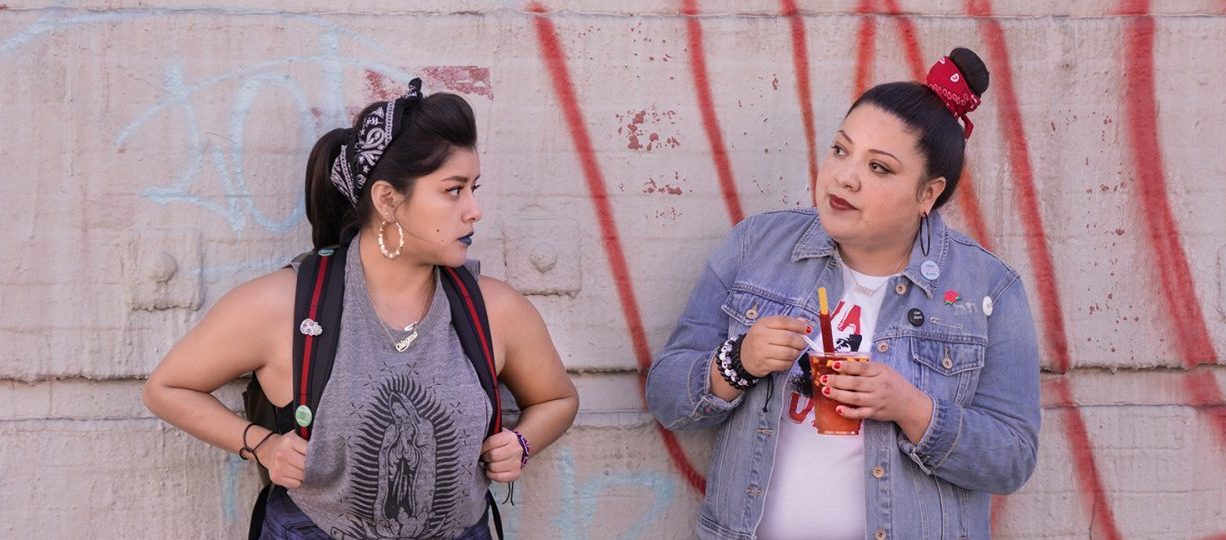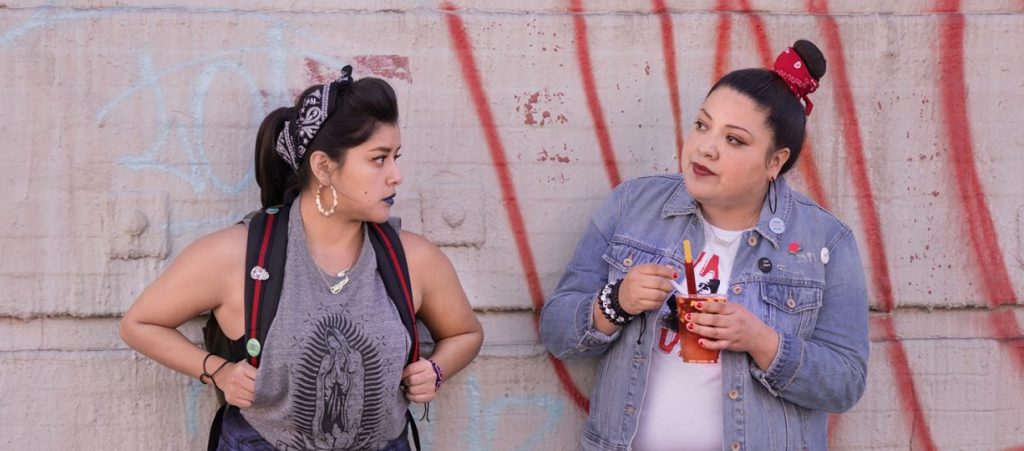Last Sunday, Starz’s ace new show Vida aired the sixth and final episode of its first season. Already, we’re clamoring for more. The series about Emma and Lyn, two sisters who have to come together to figure out what to do with their lives once their mother passes away, expertly complicated that simple-sounding premise with a number of revelations that made it must-see TV.
Spoiler Alert: Plot details are revealed from Vida’s first season.
For starters, we learn that Emma (Mishel Prada) had been sent away from their home in LA because her mother Vidalia had found out she felt attracted to other girls. That’s what makes the fact that Vidalia had (secretly) been living with her lesbian partner Eddy (Ser Anzoategui) for several years before her death all the more shocking to the uptight, business-driven Emma. Add in the fact that Lyn (Melissa Barrera) is the kind of free-wheeling spirit who goes to a bruja to shake off the hot ex-bf who now has a baby mama that hates her and you’ve got yourself a powder-keg of a show. That this Eastside LA story also managed to tackle gentrification, homophobia, and racism, while positing a sex-positive, queer AF vibe where Latinas were front and center while giving us one of the more beautifully shot half-hour dramas in 2018 is nothing short of miraculous.
“I wish we could do it right. But better,” Emma says in the show’s season finale. “Then why don’t we?” Lyn retorts. They’re talking about Vida’s bar, but we’re wishing they’re also talking about a second season of the show. Because we need more of these women in our lives. And, yes, we’re also curious to see if their plan for the bar (which may or may not including a Lotería theme) will come to pass. In that spirit, and for any Starz executives that are reading this, find five reasons below why Vida should be renewed ASAP.
Vida’s first season is now available on Starz On Demand.
UPDATE 6/13/2018: Starz announced it renewed Vida for season two.
1
Its Wokeness
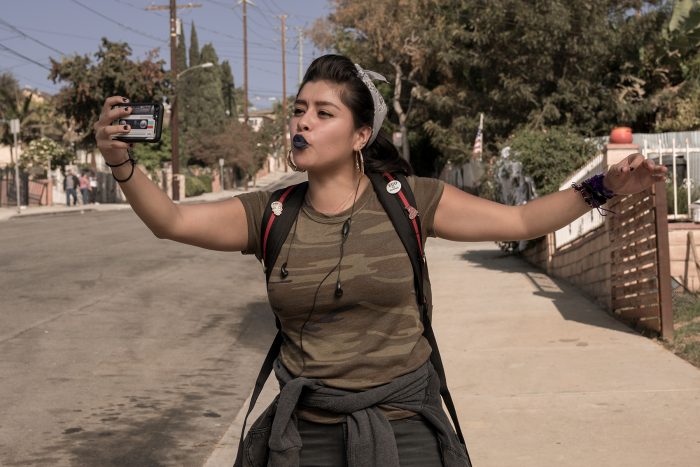
Embodied by Mari (Chelsea Rendon), the outspoken activist who uses her vlog to call out the gentrifying forces that are changing the barrio around her, Vida is committed to showing how social and economic forces threaten the Latinx community on the Eastside of LA. Putting Emma’s decision to potentially sell the building that houses her mother’s bar to a real estate developer who’s doing all he can to transform the neighborhood at the center of this season’s storyline — Vida understands that abstract concepts like gentrification need to be understood in terms of the personal cost they extract on everyday black and brown people.
2
Its Frank Depiction of (Queer) Sex
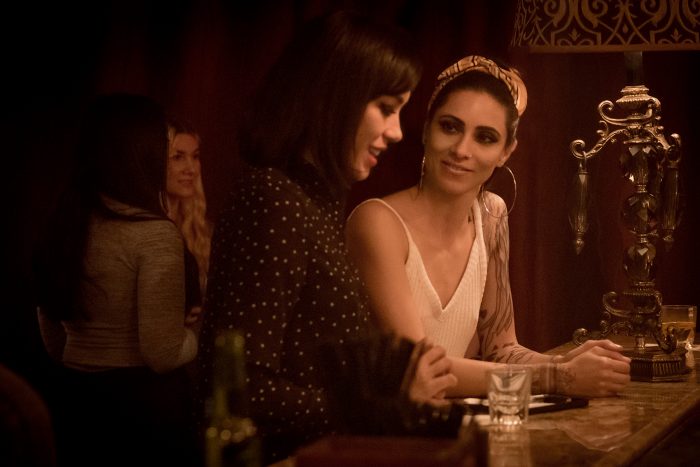
Whether showing Lyn getting oral sex from her ex in a staircase or showing Emma getting into a hot and heavy near-BDSM scene with Cruz (Maria-Elena Laas), Vida has no qualms about showing intimate sexual moments on screen. Moreover, none of these feel exploitative: they are character-driven moments that show just how desperate Lyn is for affection and how hard it is for Emma to let herself go. Moreover, with an equal opportunity nudity approach (you’ll find no awkward, pan away from the bed shots, giving us plenty of full-frontal male nudity), Vida shows us that sex need not be something that needs to be hidden or tip-toed around but a central part of adult life.
3
Its Use of Spanglish
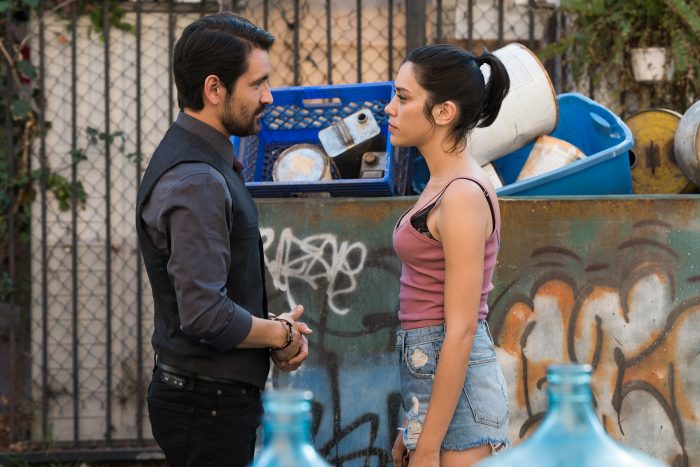
The level of authenticity that runs through Vida is nowhere more evident than its use of language. Sure, the brujería and flan jokes and Selena imagery all clue you in to the fact that this was a show made by Latinas for Latinas, but the way Emma, Lyn, Mari and everyone else on screen shuttles back and forth between English and Spanish, using Spanglish at times to better explain themselves shows an attempt to capture what it means to truly be a second-, or third-generation Mexican in Los Angeles. Even more than that, the fact that characters like Mari call out Lyn and Emma for their lack of Spanish skills speaks even more poignantly to how this other mother tongue can often be weaponized within our own community. While specific slang words like chingona, pocha, and cora made their way to TV screens likely for the first time.
4
Its Focus On Issues Within Our Community
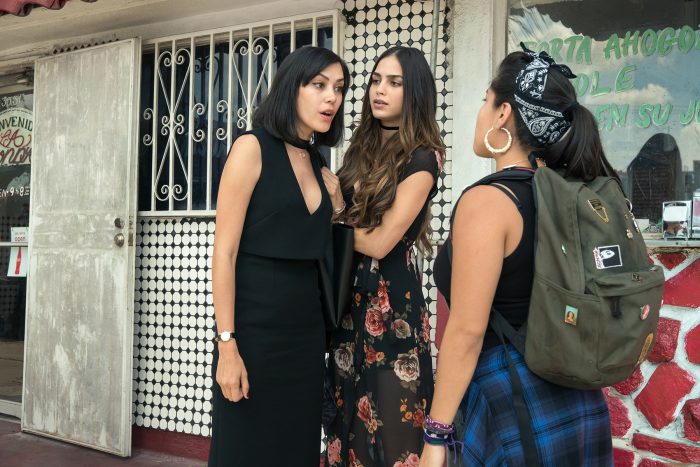
Here’s what happens when you create a show about a family on the Eastside of LA: your characters stop serving someone else’s story and allow you to focus on what’s happening within that community. The fact that Vida gives equal weight to Mari’s struggles and embarrassing sexual exploits as Lyn’s careless trysts and ill-conceived retail therapy show a range of Latinidad that’s not often explored on screen. When you have a variety of Latinas on your show you’re able to show the sheer variety and diversity therein, making it harder to reduce one or all to a stereotype. That means you’re also capable of highlighting the racism and colorism that pits the Maris and the Lyns against one another, and the homophobia that proves equally destructive for women like Emma and Eddy, though in different and varying degrees.
5
Its Cast & Crew

The reasons above are all premised on one thing: the fact that Vida is an all-Latinx show. That means that creator-showrunner Tanya Saracho not only cast Latinas in all its major roles (including giving the role of Eddy to non-binary actor Ser Anzoategui) but filled its crew with as many talented members of the Latinx community as she could. Giving directors like Rose Troche, Rashaad Ernesto Green, and Catalina Aguilar Mastretta; cinematographers like Carmen Cabana; and writers like Nancy C. Mejia, Mando Alvarado, Chelsey Lora, Evangeline Ordaz, and Santa Sierra a spot on her show sends a message loud and clear to the industry at large: there’s no reason why any or all of these people to be the token Latino on your crew. There are plenty of us eager, willing, and talented enough to fill the ranks and help make your show a success.



